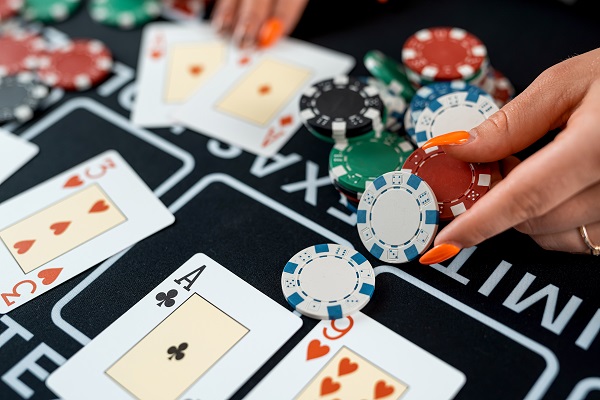
Exploring the psychology behind gambling involves examining the complex interplay of emotions, cognition, and neurobiology that drive individuals to participate in such activities. Risk-taking behavior, influenced by factors like the thrill of uncertainty and potential rewards, plays a significant role in attracting people to gambling. The brain’s dopamine-driven reward system also contributes to the reinforcing nature of gambling behavior.Exploring the psychology behind gambling involves examining the complex interplay of emotions, cognition, and neurobiology that drive individuals to participate in such activities. Risk-taking behavior, Pavilion88 influenced by factors like the thrill of uncertainty and potential rewards, plays a significant role in attracting people to gambling. The brain’s dopamine-driven reward system also contributes to the reinforcing nature of gambling behavior.
Deeper motivations and subconscious influences may impact decision-making in gambling scenarios, often shaping individuals’ choices at the casino or in online betting environments. Understanding these underlying factors can offer insight into the reasons behind compulsive gambling behaviors and addiction.
Overall, the psychology behind gambling provides a valuable perspective on the intricate relationship between chance and decision-making processes in the context of gaming activities.
Motivations for Gambling
When examining the motivations for gambling, individuals are influenced by a range of factors, from seeking excitement and thrill to attempting to avoid reality. The allure of taking risks and the possibility of significant wins can be appealing, prompting many to participate in gambling activities.
Some view it as a form of entertainment or a way to socialize with others through a shared activity. Others may use gambling as a way to cope with stress or negative emotions, using it as a temporary escape from their daily concerns.
Understanding these motivations can offer insights into why individuals are attracted to gambling and the underlying psychological dynamics involved.
Risk-Taking Behavior
Curiosity about the factors behind risky behaviors in gambling often involves a mix of motivations such as seeking excitement, thrill, and a desire for quick gains. Placing a bet carries the potential for a high reward, triggering an adrenaline rush that heightens excitement. This sensation can become addictive, leading individuals to pursue riskier bets in pursuit of the same intense feeling.
Moreover, the allure of a significant, rapid win can override rational decision-making, prompting individuals to take more risks than initially planned. Recognizing and managing these motivations is crucial in addressing risk-taking tendencies during gambling activities.
Cognitive Biases in Gambling
Understanding the psychology of gambling involves recognizing cognitive biases that can affect decision-making in betting activities.
One common bias is the gambler’s fallacy, where individuals mistakenly believe that past outcomes can influence future results. This can lead to irrational beliefs and risky behaviors like chasing losses or increasing bets after a series of losses.
Another prevalent bias is the illusion of control, where players overestimate their ability to influence the outcome of games of chance. These biases can distort judgment and result in poor decision-making, impacting the overall gambling experience.
Reward Processing in the Brain
Studying the brain’s reward processing system offers valuable insights into the mechanisms influencing individuals’ participation in gambling activities. Gambling triggers activation in key brain regions like the ventral striatum and prefrontal cortex, crucial for processing rewards and decision-making.
The prospect of winning prompts dopamine release, inducing pleasure and reinforcing behavior. This reinforcement mechanism contributes significantly to the addictive nature of gambling, as positive feelings become associated with the activity.
Understanding the neural processes involved in reward processing helps explain why individuals are attracted to the excitement of gambling despite its inherent risks.
The Role of Dopamine
In the realm of gambling psychology, dopamine plays a significant role in shaping individuals’ behaviors and motivations. Dopamine is a neurotransmitter linked to pleasure and reward pathways in the brain. When individuals participate in gambling activities, the anticipation of a potential win triggers the release of dopamine, leading to feelings of excitement and pleasure.
This neurotransmitter reinforces the behavior, increasing the likelihood of continued gambling in pursuit of that rewarding sensation. Over time, this pattern can contribute to the development of addictive behaviors as the brain seeks the dopamine release associated with gambling. Understanding the impact of dopamine on gambling tendencies can assist individuals in making informed decisions and potentially avoiding problematic gambling habits.
Emotional Regulation and Gambling
In the realm of gambling, there exists a intricate relationship between emotional regulation and decision-making. In the casino environment, emotions tend to fluctuate, ranging from the elation of winning to the despair of losing. The ability to effectively manage these emotions can significantly influence one’s gambling behavior.
Studies indicate that individuals who encounter challenges in regulating their emotions may display a propensity towards impulsive decision-making while engaging in gambling activities. For some individuals, gambling serves as a means to escape or numb unpleasant emotions, leading to risky wagers and pursuing losses.
Developing the skill to identify and regulate emotions can enhance one’s capacity to make logical decisions and steer clear of detrimental gambling patterns. By comprehending how emotions impact decision-making, individuals can take strides towards fostering healthier gambling practices.
Fear of Missing Out (FOMO)
Emotions significantly influence gambling behavior, with the Fear of Missing Out (FOMO) being a notable psychological factor for individuals engaging in such activities. FOMO drives individuals to participate in gambling to avoid feelings of exclusion and to seize potential opportunities. This fear arises from the need for inclusion, the urge to keep pace with others, and the aversion to missing out on the excitement and rewards associated with gambling.
When under the influence of FOMO, individuals may impetuously join gambling activities without thoroughly assessing the associated risks. This behavior can result in reckless decision-making, increased financial losses, and a pattern of attempting to recover losses to prevent missing out on potential gains. Recognizing and managing FOMO is essential for fostering responsible gambling habits.
Social Influences on Gambling
Social influences significantly shape individuals’ gambling behavior, with friends, family, and society impacting the extent of gambling and game preferences. Peer pressure and the need to conform to a social group can influence participation in gambling activities that may not have been considered otherwise.
Observing others gamble can normalize the behavior, potentially increasing its acceptability. Social media and advertising, through influencers and promotions, can glamorize gambling and create the illusion of easy victories.
Being mindful of these social influences is crucial in making informed decisions aligned with personal values.
Impulse Control and Gambling
Impulse control is a significant factor in determining the extent of involvement in gambling activities and the potential negative outcomes that may result. It involves the ability to resist immediate urges and impulses in favor of long-term goals and values.
Individuals with poor impulse control in the context of gambling may be more susceptible to the allure of the moment, leading to excessive wagering and attempts to recover losses. This lack of control can lead to financial difficulties, strained relationships, and the risk of developing a gambling addiction.
Implementing strategies to enhance impulse control, such as setting limits on both time and money spent on gambling, can help reduce these risks. By recognizing and addressing impulsive tendencies, individuals can better manage their gambling behaviors and make more rational decisions.
Conclusion
In conclusion, the psychology behind gambling is a fascinating mix of motivations, cognitive biases, and brain processes that drive individuals to engage in this risky behavior. From seeking excitement and thrill to the influence of dopamine and social factors, the reasons for gambling are complex and varied. Understanding these psychological factors can shed light on why people gamble and how addictive tendencies may develop.


